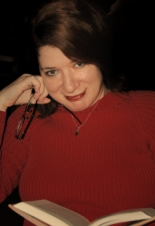YA-YA Readerhood
I love young adult (YA) books, and I’m not alone in that, either. Just ask the 116 million Twilight fans and the 450 million Harry Potter fans. They’re good stories, engaging and striking a chord within each of us in one way or another. Both of those particular series are categorized as young adult fiction novels, but that didn’t discourage readers of all ages to jump on the bandwagon and see what all the lore was about.
Not all YA books capture our hearts, but most of them make a real effort to do so and succeed. That category encapsulates many different genres within itself, such as romance, science fiction, mystery, and so on. There’s really something for everyone. It’s a huge market for the right writer and publisher. I’m sure that many publishers are looking for the next J.K. Rowling, Stephanie Meyer, S.E. Hinton, Judy Blume, or even C.S. Lewis. Even so, YA novels are geared for a teenage audience, usually 12 to 18 years of age. But this is such a broad age group to categorize and to write for. Mostly, these books are written with a teenager as the protagonist, more dialogue than adult fiction, plot and word usage designed to appeal to an adolescent, and ethical or moral values that add meaning to the plot and/or characters. Who wouldn’t love to sit back and enjoy that?
The problem is, because the audience has such a broad age range, it’s hard to know if the book is too “young” or too “adult” to be considered young adult fiction. The Young Adult Library Services Association (YALSA) has some say in what constitutes a YA novel, but really, it runs quite a gamut of educational experience. As parents, we have to be experts-at-a-glance when approving some YA novels for our teens. That’s quite a task – barring reading the entire novel ourselves before our child does – and if your kid is like mine, when she has a book in her sights, she wants to read it NOW! So, good luck with that. I guess there has to be a certain amount of trust in the integrity of the author and publisher that what they are presenting to our kids is age-appropriate and not over the top in divulging the pains of adulthood in a way that we never want our kids to experience…ever. Pollyanna as that sounds, it is sometimes the reality.
The long and the short of it is this: I love to read young adult fiction, and just because it’s titled for one audience doesn’t mean we can’t all enjoy the fruits of the YA author’s labor. And, if you do have kids in that age group, how great is it to read the same book together and actually have something to talk about with them without too much eye-rolling and tsking going on, right?
 M. Chris Johnson is owner and Editor-in-Chief
M. Chris Johnson is owner and Editor-in-Chief
